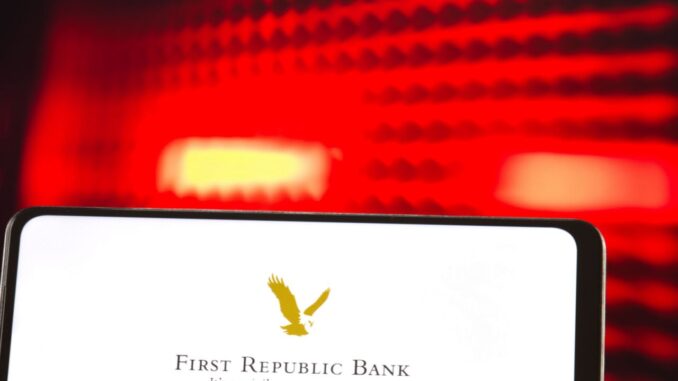
The latest takeover of First Republic Bank, the fourth U.S. financial institution to fail this 12 months, has woke up considerations in regards to the attainable repercussions this new failure might need on U.S. and worldwide economies. While United States President Joe Biden has assured the general public that the banking system stays secure, analysts are warning that this won’t be the final financial institution failure on this interval of turmoil.
First Republic Bank Collapse Shows the Weaknesses of the US Banking System, Say Analysts
The latest collapse of First Republic Bank, the second-biggest financial institution failure within the historical past of the U.S., has set off the alarm bells of analysts relating to the attainable repercussions that this might need on the economic system of the nation. While President Joe Biden has assured that the banking system is secure, some consider the fourth financial institution failure in a 12 months would possibly present that the U.S. banking system has systemic weaknesses.
An nameless funding supervisor at a Beijing financial institution instructed Global Times that this new collapse will probably result in extra banks failing in a future liquidity crunch. He acknowledged:
The takeover signifies the issue is extra extreme than we first predicted, as we believed the disaster had been eased after the earlier bailout.
Jamie Dimon, CEO of JPMorgan, the financial institution that took over First Republic, declared he believes this “part of the crisis is over.” However, some American analysts suppose in any other case.
Tomasz Piskorski, a professor at Columbia Business School, believes that different banks might be in danger. He declared:
By our calculations near 200 different banks can fail, many of that are smaller [than First Republic]. The points aren’t over.
Federal Reserve Blamed
Several analysts consider that these financial institution failures need to do with the hawkish insurance policies of the U.S. Federal Reserve, which has been persistently elevating rates of interest to convey inflation charges all the way down to 2% since final 12 months. About this, Piskorski defined:
There’s lots of of banks which have the present market worth of property lower than the face worth of debt, and [the crisis] is principally brought about by the rate of interest enhance by the Fed.
This would possibly trigger the U.S. authorities to face an unsolvable dilemma, in keeping with Gao Lingyun, of the Chinese Academy of Social Sciences in Beijing. The pickle being having to boost rates of interest to decrease inflation charges, however affecting the values of the loans made by the banks when these similar charges had been decrease, rising their dangers of defaulting. This, in flip, would possibly contribute to a future recession and different financial institution failures in additional nations, Gao warned.
What do you consider the attainable repercussions of the collapse of First Republic Bank? Tell us within the feedback part under.
Image Credits: Shutterstock, Pixabay, Wiki Commons, Below the Sky / Shutterstock.com
Disclaimer: This article is for informational functions solely. It will not be a direct supply or solicitation of a proposal to purchase or promote, or a suggestion or endorsement of any merchandise, providers, or corporations. Bitcoin.com doesn’t present funding, tax, authorized, or accounting recommendation. Neither the corporate nor the creator is accountable, instantly or not directly, for any injury or loss brought about or alleged to be brought about by or in reference to the use of or reliance on any content material, items or providers talked about on this article.



